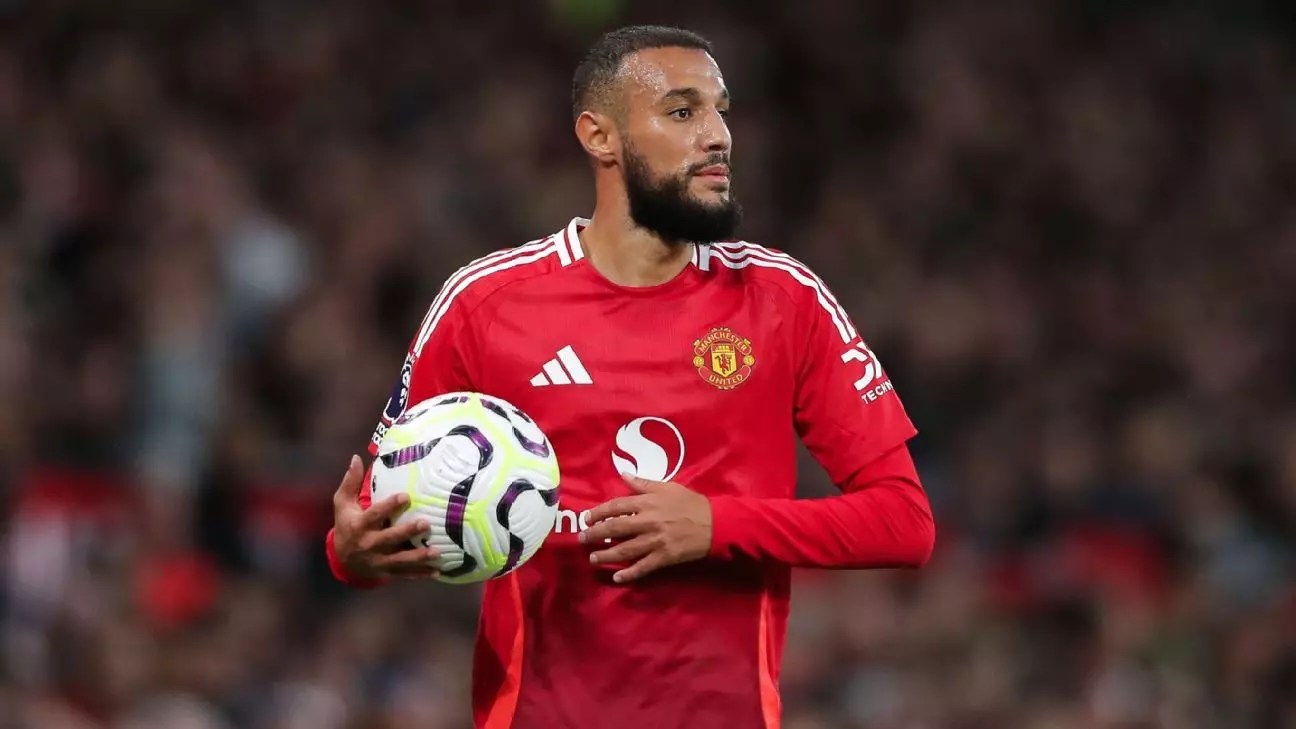The recent news surrounding Manchester United’s defender, Noussair Mazraoui, has raised concerns not only for the player himself but also for the club’s already struggling depth in defense. Following a heart procedure after exhibiting alarming symptoms, including heart palpitations, Mazraoui’s absence from the pitch presents yet another challenge for manager Erik ten Hag. While club sources assure that the operation was minor and not an emergency, the implications for the team lead to serious questions about their defensive strategies during this period.
Mazraoui’s situation is not an isolated incident; in fact, it mirrors past health-related challenges that athletes endure, which often take a deeper toll than simply physical setbacks. Previously, the Moroccan international dealt with heart complications stemming from COVID-19. His three-month absence while with Bayern Munich due to cardiac issues demonstrates that these concerns are not merely fleeting inconveniences. Such ailments can leave a lasting impact on both physical fitness and mental sharpness—the psychological ramifications of experiencing heart issues as a professional athlete cannot be overstated.
Mazraoui’s injury compounds an already precarious situation for Manchester United. With fellow defenders Luke Shaw and Tyrell Malacia also sidelined for extended periods, Ten Hag finds his squad depleted at a critical juncture. The ongoing international break introduces a rare pause in the hectic football schedule, yet it affords little relief for a manager facing increasing scrutiny. The loss of key players like Kobbie Mainoo, Alejandro Garnacho, and Amad Diallo only escalates the pressure. Under these circumstances, Ten Hag’s tactical flexibility will be put to the test as he scrambles to devise strategies without several key contributors.
Though Mazraoui’s condition has been labeled “relatively common” by medical sources, the uncertainty surrounding his recovery timeline remains a cloud hanging over the club. As fans eagerly await updates on his progress, attention must shift toward how United can adapt to these developments on the field. The post-international break matches could provide an opportunity for younger talents to emerge and fill vital roles in the squad. This situation forces an examination of Manchester United’s depth and overall resilience, particularly in a time of physical hardship.
Challenges like these can serve as catalysts for unity within the team. Players often rally around each other in tough times, which could instill newfound determination and spirit. United’s coaching staff must leverage this moment to not only strategize but also to reinforce the importance of teamwork and collective strength in the face of adversity. As they embark on this crucial period, the focus should not solely be on Mazraoui’s absence but also on harnessing the existing squad’s potential to emerge stronger—both individually and as a cohesive unit.
Noussair Mazraoui’s health issues spotlight the fragility inherent in professional sports while underscoring the need for comprehensive support systems within clubs. Manchester United’s ability to navigate this challenging period will be invaluable in defining their trajectory in the coming weeks and months.


Leave a Reply